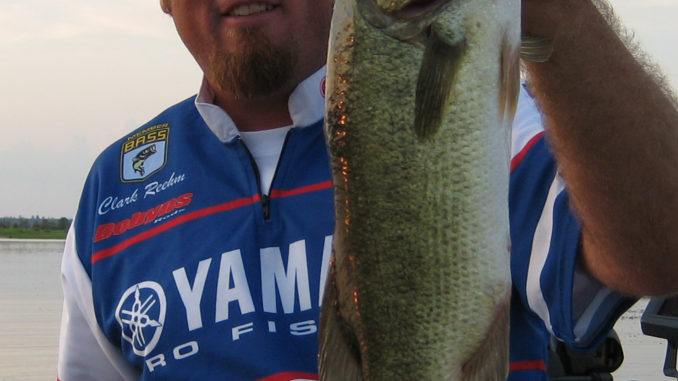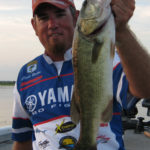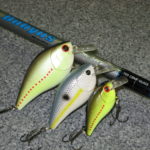
Fishing square-billed crankbaits isn’t something you should do without giving a lot of consideration to what you’re going to tie them to and throw them on. Selecting unmatched rods and line will not only make it more difficult to land a fish, you might also see your $15 crankbait sailing off in the distance on your next cast.
“I like the fiberglass Dobyns 705 rods for open water,” said BASS pro Clark Reehm. “Fiberglass is important when fishing crankbaits because it acts as a shock absorber when a bass is making its last hard run at the boat — that’s where most crankbait fish are lost.
“But fiberglass rods have some drawbacks in the heavy wood because they don’t help you move those fish away from cover as fast as you need to. That’s why I switch to a Dobyns 733. It’s a stiffer rod, and it allows me to pull a fish out from under a log or laydown before it can get wrapped up.”
As for line, Reehm sticks with fluorocarbon because of its happy medium between braided line and monofilament. He switches back and forth between 12-, 15-, and 20-pound test Seagur AbrazX line based on the cover he’s fishing.
“You wouldn’t believe how often bass will eat these things and swim right to you,” Reehm said. “That’s where the sensitivity of fluorocarbon comes into play, but I mainly use the fluorocarbon for its abrasion-resistance. When you’re banging square-bills into heavy cover all day long, you need a line that can take that kind of abuse.”
Even so, Reehm recommends checking your line frequently for nicks, or simply taking the approach of cutting off and retying every 10 minutes or so.
Editor’s Note: This story appears as part of a feature in Louisiana Sportsman’s October issue. To ensure you don’t miss any information-packed issues, click here to have each magazine delivered right to your mail box.




